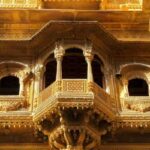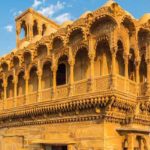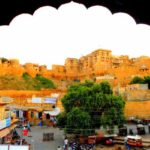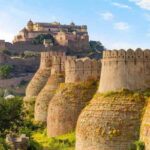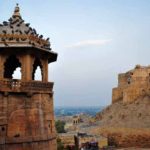Jaisalmer Travel Information, located in Rajasthan, India, is a captivating city known as the “Golden City” due to its golden sandstone architecture. Founded in 1156 AD by Maharaja Jaisal Singh, the city boasts a rich history and cultural heritage.
The most prominent landmark in Jaisalmer is the magnificent Jaisalmer Fort, also known as Sonar Quila or the Golden Fort. Built on Trikuta Hill, the fort is a UNESCO World Heritage Site and offers breathtaking views of the surrounding desert landscape. It houses several ornate palaces, temples, and havelis (mansions) adorned with intricate carvings Jaisalmer Tour Packages.
The city is famous for its exquisitely crafted havelis, such as Patwon Ki Haveli, Nathmal Ki Haveli, and Salim Singh Ki Haveli. These architectural marvels showcase the craftsmanship and opulence of the bygone era.
Jaisalmer is also renowned for its desert adventures. The Sam Sand Dunes, a short distance from the city, provide an opportunity to experience camel rides, witness stunning sunsets, and immerse in the vibrant Rajasthani folk culture Jaisalmer Monuments.
The city hosts the Desert Festival, an annual extravaganza celebrating the rich cultural heritage of Rajasthan. The festival showcases folk music, dance performances, camel races, and other traditional activities, attracting tourists from far and wide.
With its historical significance, mesmerizing architecture, and desert charm, Jaisalmer Tourism a unique and enchanting experience for visitors seeking to immerse themselves in the vibrant tapestry of Rajasthan’s culture and history.
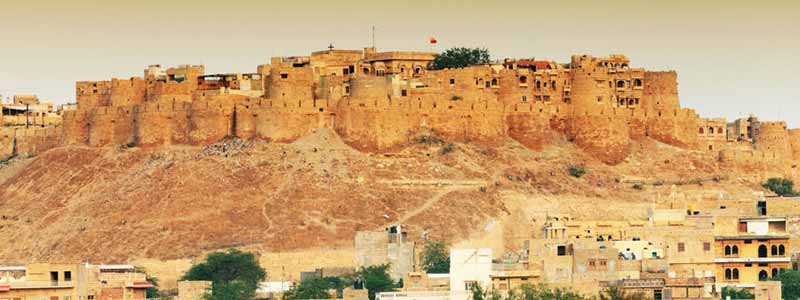
History of Jaisalmer
The history of Jaisalmer dates back to ancient times and is filled with tales of valor, trade, and the rise and fall of kingdoms. The city takes its name from Maharaja Jaisal Singh, who founded it in 1156 AD.
Jaisalmer is located on an important trade route that connected India with Central Asia and the Arab world. Due to its strategic location, the city flourished as a center of commerce and attracted merchants from various parts of the world, including Persia, Egypt, and Europe. The city’s prosperity was primarily based on the trade of silk, spices, precious stones, and other commodities.
In the 12th century, Maharaja Jaisal Singh, a Rajput ruler belonging to the Bhati clan, established Jaisalmer as his capital. He constructed the magnificent Jaisalmer Fort on Trikuta Hill to provide protection to the city against invasions. The fort was built using yellow sandstone, which gives it a distinct golden color and earned it the name “Sonar Quila” or the Golden Fort.
Over the centuries, Jaisalmer faced numerous invasions and conflicts. The region witnessed power struggles between Rajput rulers, Mughal emperors, and other regional powers. The fort withstood several sieges and remained unconquered for a significant part of its history. However, it eventually fell under the control of various dynasties, including the Mughals and the British.
During the British Raj, Jaisalmer was a princely state under the suzerainty of the British Empire. The rulers of Jaisalmer maintained their autonomy and continued to govern the state. After India gained independence in 1947, Jaisalmer, like other princely states, acceded to the newly formed Republic of India.
Today, Jaisalmer is a popular tourist destination renowned for its well-preserved heritage and architectural wonders. The city’s historical buildings, including the Jaisalmer Fort and the intricately carved havelis, attract visitors from all over the world.
Jaisalmer’s history is not only reflected in its architectural marvels but also in its rich cultural heritage. The city has a vibrant tradition of music, dance, and folk arts, which are showcased during festivals and cultural events.
Despite the modern influences and the growth of tourism, Jaisalmer has managed to preserve its unique character and charm. It stands as a testament to the valor of its Rajput rulers, the resilience of its people, and the historical significance of the region as a crossroads of trade and culture.
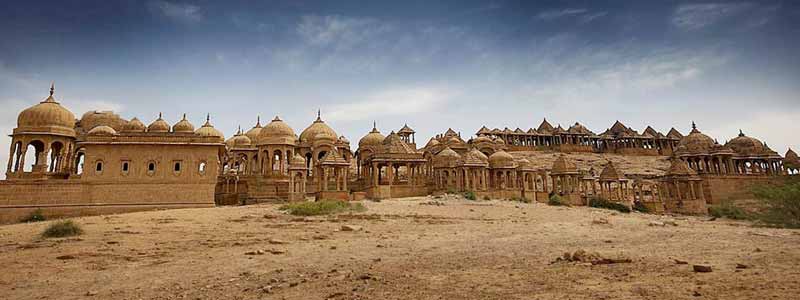
Places to Visit in Jaisalmer
Jaisalmer, also known as the “Golden City,” is a popular tourist destination in the state of Rajasthan, India. With its mesmerizing sand dunes, magnificent forts, intricately carved havelis, and vibrant culture, Jaisalmer offers a plethora of attractions for visitors to explore. Here are some of the must-visit places in Jaisalmer.
Jaisalmer Fort (Sonar Quila): A UNESCO World Heritage Site, the Jaisalmer Fort is the crown jewel of the city. Built in the 12th century by Maharaja Jaisal Singh, the fort stands tall on Trikuta Hill and is made of yellow sandstone, which gives it a golden hue. The fort houses several palaces, temples, havelis, and narrow winding lanes that showcase the architectural brilliance of the bygone era. Exploring the fort is like stepping back in time.
Patwon Ki Haveli: Located in the heart of Jaisalmer, Patwon Ki Haveli is a cluster of five havelis that belonged to the wealthy merchant family of Patwa. These intricately carved mansions display exquisite architecture and craftsmanship. Each haveli has unique features, including ornate facades, balconies, and detailed wall paintings. A visit to Patwon Ki Haveli provides a glimpse into the opulent lifestyle of the affluent merchants of Jaisalmer.
Salim Singh Ki Haveli: Another stunning haveli worth visiting is Salim Singh Ki Haveli. Built by Salim Singh, the prime minister of Jaisalmer in the 18th century, this haveli stands out for its distinctive peacock-shaped roof and intricate stone carvings. The rooftop offers panoramic views of the city, and the interior houses beautifully decorated rooms and corridors.
Nathmal Ki Haveli: Nathmal Ki Haveli is a masterpiece of architecture and craftsmanship. It was built by two brothers, Hathi and Lulu, who worked on different sides of the haveli without any formal plans. As a result, the haveli showcases a unique blend of Rajput and Islamic architectural styles. The intricate carvings, ornamental pillars, and beautifully carved balconies are a treat for the eyes.
Gadisar Lake: Located on the outskirts of Jaisalmer, Gadisar Lake is a man-made reservoir that served as the primary water source for the city in ancient times. Surrounded by temples, ghats, and beautiful archways, the lake offers a serene and picturesque setting. Visitors can enjoy boating on the lake and visit the temples and shrines built around it.
Sam Sand Dunes: A trip to Jaisalmer is incomplete without experiencing the magical sand dunes of Sam. Located around 45 kilometers from the city, the Sam Sand Dunes offer a unique desert adventure. Visitors can enjoy camel rides through the vast expanse of sand dunes, witness stunning sunsets, and indulge in traditional Rajasthani music and dance performances. Camping under the starlit sky in the desert is a popular activity here.
Kuldhara Village: Located about 20 kilometers from Jaisalmer, Kuldhara is an abandoned village that is shrouded in mystery and folklore. Legend has it that the village was abandoned overnight by its residents due to an unjust taxation policy. The village now stands as a hauntingly beautiful place with crumbling houses and a sense of eerie charm. Exploring the deserted streets of Kuldhara provides a fascinating glimpse into its enigmatic past.
Desert National Park: For nature enthusiasts, a visit to the Desert National Park is a must. Spread over an area of 3,162 square kilometers, the park is home to a diverse range of flora and fauna. Visitors can spot wildlife like desert foxes, blackbucks, and various species of migratory birds. The park also offers opportunities for nature walks and jeep safaris.
Jain Temples: Jaisalmer is home to several beautiful Jain temples known for their intricate architecture and religious significance. The Jain temples inside the Jaisalmer Fort are a must-visit. The temples are adorned with exquisite marble carvings, intricate mirror work, and stunning artwork depicting the Jain Tirthankaras.
Desert Festival: If you happen to visit Jaisalmer in February, do not miss the Desert Festival. This three-day extravaganza celebrates the rich cultural heritage of Rajasthan. The festival showcases folk music and dance performances, camel races, turban tying competitions, and other traditional events. It offers a vibrant and colorful experience, providing insights into the local traditions and customs.
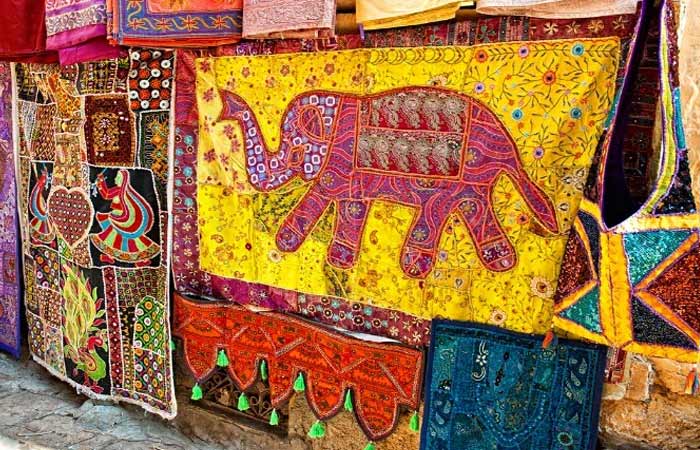
Famous Shopping Markets in Jaisalmer
Jaisalmer, the “Golden City” of Rajasthan, offers a vibrant and lively shopping experience. The markets of Jaisalmer are known for their traditional Rajasthani handicrafts, textiles, jewelry, and souvenirs. Here are some popular shopping areas and markets to explore in Jaisalmer:
Sadar Bazaar: Located near the Jaisalmer Fort, Sadar Bazaar is a bustling market where you can find a wide range of products. It is known for its textiles, including vibrant Rajasthani sarees, turbans, and fabrics. You can also find a variety of handicrafts, camel leather items, embroidered textiles, silver jewelry, and souvenirs. Don’t forget to bargain for the best prices.
Manak Chowk: Adjacent to the Jaisalmer Fort, Manak Chowk is a popular market square known for its bustling atmosphere. Here, you can find a variety of shops selling handicrafts, textiles, jewelry, puppets, embroidered garments, and traditional Rajasthani footwear such as jootis (leather shoes). The market is also famous for its colorful bangles and antique items.
Pansari Bazaar: Situated near the Patwon Ki Haveli, Pansari Bazaar is known for its textile and garment shops. You can find a variety of Rajasthani textiles, including Bandhani (tie and dye), block prints, and embroidered fabrics. The market also offers a range of traditional accessories like turbans, dupattas, stoles, and shawls.
Bhatia Bazaar: Located in the heart of Jaisalmer, Bhatia Bazaar is known for its handicrafts and antique items. The market offers a variety of camel leather products, such as bags, shoes, wallets, and belts. You can also find traditional Rajasthani handicrafts, including wooden artifacts, puppets, silver jewelry, and decorative items.
Sonaron Ka Baas: Translated as the “Street of Goldsmiths,” Sonaron Ka Baas is a narrow lane near the Jaisalmer Fort, lined with shops selling exquisite Rajasthani jewelry. You can find a wide range of silver jewelry, including earrings, necklaces, bracelets, and rings, adorned with intricate designs and semi-precious stones. The lane is a paradise for jewelry lovers.
Khadi Gramodyog Bhavan: Located near the Amar Sagar Gate, Khadi Gramodyog Bhavan is a government-run store that promotes Khadi (handspun and handwoven) textiles. Here, you can find a variety of Khadi garments, including sarees, kurtas, and shirts, as well as other Rajasthani handicrafts, souvenirs, and organic products.
Desert Handicrafts Emporium: Situated near Gandhi Chowk, the Desert Handicrafts Emporium is a popular shop known for its collection of Rajasthani handicrafts. Here, you can find items like embroidered textiles, mirror work fabrics, wooden carvings, metal artifacts, paintings, and miniature artwork.
While shopping in Jaisalmer, don’t forget to bargain and compare prices across different shops to get the best deals. Also, check the authenticity and quality of the products before making a purchase. Exploring the markets of Jaisalmer is not only a great shopping experience but also an opportunity to immerse yourself in the vibrant culture and craftsmanship of Rajasthan.
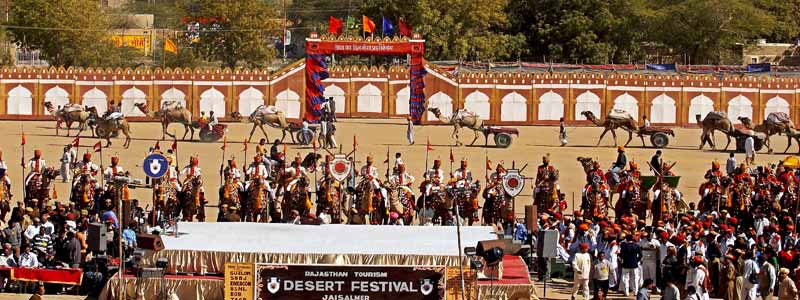
Festivals of Jaisalmer
Jaisalmer is famous for its vibrant fairs and festivals that showcase the rich cultural heritage of Rajasthan. One of the most popular festivals in Jaisalmer is the Desert Festival, which attracts tourists from around the world. Here are some details about the Desert Festival and other notable fairs and festivals in Jaisalmer:
Desert Festival: The Desert Festival is a three-day extravaganza held annually in the month of February. It celebrates the vibrant culture and traditions of Rajasthan. The festival takes place amidst the golden sand dunes of the Thar Desert, creating a unique and enchanting ambiance. During the festival, you can witness folk music and dance performances, camel races, turban tying competitions, puppet shows, and other traditional events. The festival also showcases local handicrafts, food stalls serving traditional Rajasthani cuisine, and an incredible display of fireworks.
Jaisalmer International Desert Kite Festival: This festival is held during the month of January and celebrates the art of kite flying. The skies of Jaisalmer come alive with colorful kites of various shapes and sizes. Participants from different countries come together to display their kite-flying skills and compete in friendly matches. The festival also includes cultural performances, kite-making workshops, and a grand finale with illuminated kites lighting up the night sky.
Gangaur Festival: Celebrated in March or April, the Gangaur Festival is dedicated to the goddess Gauri, who symbolizes marital bliss and happiness. The festival is especially important for married women, who pray for the well-being and longevity of their husbands. The celebration involves beautifully adorned idols of Gauri and procession with traditional music and dance. Women dress in vibrant Rajasthani attire and carry earthen pots on their heads, symbolizing the goddess.
Teej Festival: Teej is a monsoon festival celebrated in July or August, primarily by women. It marks the advent of the monsoon season and the reunion of Lord Shiva and Goddess Parvati. Women dress in colorful traditional attire, apply intricate henna designs on their hands, and participate in traditional folk dances. The festival is a celebration of womanhood, and married women seek blessings for a happy married life.
These are some of the prominent fairs and festivals celebrated in Jaisalmer. The city comes alive with music, dance, vibrant costumes, and cultural performances during these events. Attending these festivals offers a glimpse into the rich cultural traditions and adds an extra layer of excitement and vibrancy to your visit to Jaisalmer.
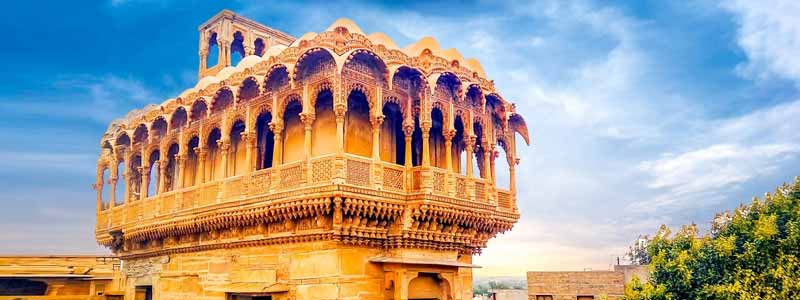
Best Time to Visit Jaisalmer
The best time to visit Jaisalmer is during the winter months, from October to March. This period offers pleasant weather and is ideal for exploring the city and its attractions. Here’s a breakdown of the seasons and their characteristics:
Winter (October to March): Winter is the peak tourist season in Jaisalmer, and for good reason. The weather during this time is mild and enjoyable, with temperatures ranging from 5°C to 25°C (41°F to 77°F). The days are sunny and pleasant, while the nights can be cool. It’s a perfect time to explore the magnificent Jaisalmer Fort, visit the havelis, enjoy camel safaris, and witness the mesmerizing sand dunes. The Desert Festival, usually held in February, is also a major attraction during this period.
Summer (April to June): Summers in Jaisalmer can be scorching hot, with temperatures soaring above 40°C (104°F). The heat can be quite intense, making outdoor activities uncomfortable. Many tourists tend to avoid visiting Jaisalmer during this time. However, if you can tolerate the heat, you might find fewer crowds and better deals on accommodations.
Monsoon (July to September): Jaisalmer experiences a limited amount of rainfall during the monsoon season. The weather is relatively cooler, but humidity levels can be high. The desert landscape transforms during this time, with a lush green cover and occasional rainfall. However, outdoor activities may be restricted due to wet conditions, and some tourist sites may have limited accessibility.
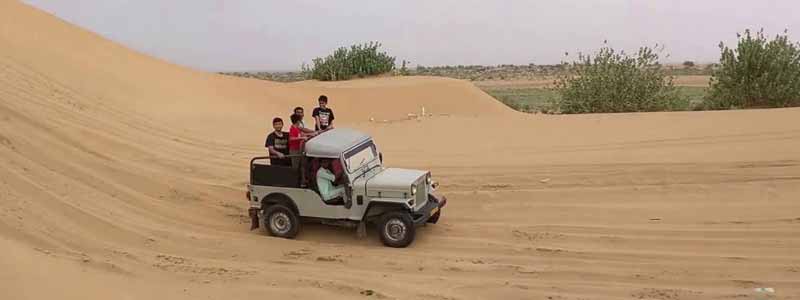
How to Reach Jaisalmer
Jaisalmer, located in the western part of Rajasthan, India, is well-connected to major cities and transportation hubs. Here are the different modes of transportation to reach Jaisalmer:
By Air: The nearest airport to Jaisalmer is Jaisalmer Airport, which is well-connected to major cities in India. However, the number of flights can be limited. The major international airport nearby is Jodhpur Airport, which is about 285 kilometers away from Jaisalmer.
By Train: Jaisalmer has its own railway station, which is well-connected to major cities in India. There are regular trains from cities like Jaipur, Jodhpur, Delhi, and Mumbai.
By Road: Jaisalmer is well-connected by road, and buses and taxis are available from nearby cities. The road network is well-maintained, and you can drive to Jaisalmer from cities like Jaipur, Jodhpur, and Bikaner.


